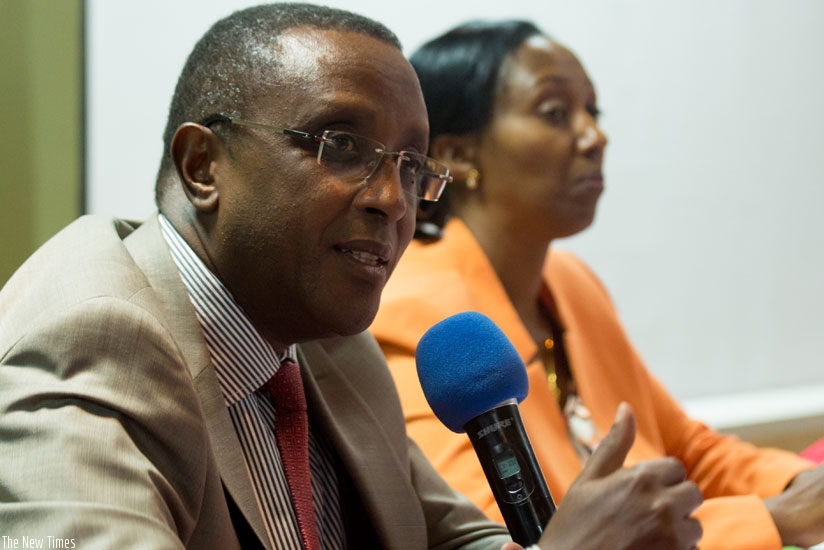Rwanda yesterday urged other nations to pass an ambitious amendment to the Montreal Protocol on Ozone Depleting Substances, as experts warn that failure to act would increase risks of skin cancer and global warming.


Rwanda yesterday urged other nations to pass an ambitious amendment to the Montreal Protocol on Ozone Depleting Substances, as experts warn that failure to act would increase risks of skin cancer and global warming.
The Montreal Protocol is a global agreement to protect the ozone layer by advocating for the phasing out of the production of substances responsible for ozone depletion and climate change.
If the amendment is passed, it will result in the early phase-down of hydrofluorocarbons (HFCs), according to a statement from the ministry.
HFCs are strong greenhouse gases used mainly in refrigeration, solvents, propellants and aerosols with a high global warming potential.
"We look forward to welcoming all parties to the Montreal Protocol to Rwanda in the spirit of international cooperation. We are pleased to see many countries supporting an ambitious amendment and are confident that it will be passed when we meet in Kigali in October. Rwanda stands ready to work with all Parties to find common ground and make the amendment a reality,” Dr Vincent Biruta, the minister for natural resources, told reporters in Kigali yesterday, on the eve of celebrations to mark the International Day for the Preservation of the Ozone Layer, held annually on September 16.
The amendment would represent the most significant global action to reduce climate change since the adoption of the Paris Agreement.
More than 1,000 international leaders and ozone preservation and low carbon development experts are expected in Kigali next month for the 28th Meeting of the Parties to the Montreal Protocol, known as MOP28.
The MOP28 will take place from October 6-14, at the Kigali Convention Centre.
Passing an ambitious amendment to the Montreal Protocol in Kigali could prevent up to 0.5°C of global warming by the end of the century by phasing out HFCs, the Government said.
A successful amendment to the protocol would signal the international community’s commitment to practical action to achieve the goals of the Paris Agreement – limiting global warming to 2°C, and the more ambitious target of 1.5°C.
Rwanda is recognised for its leading role in implementing the Montreal Protocol, exceeding targets and beating deadlines set under the treaty, officials say.
This includes achieving zero use of chlorofluorocarbon (CFCs) ozone-depleting substances by 2010, a year before the set deadline.
Rwanda’s outstanding contribution to the preservation of the Ozone Layer earned the country the 2012 Ozone Protection Award from the Ozone Secretariat of the United Nations Environment Programme (UNEP).
Ozone Day
Celebrated every year on September 16, the International Day for the Preservation of the Ozone Layer commemorates the date of the Montreal Protocol signing in 1987 and provides the opportunity to reflect on the progress made to protect the ozone layer.
The Day will be marked under the theme, "Ozone and climate: Restored by a world united and is complemented by the tagline: Working towards reducing global-warming HFCs under the Montreal Protocol.”
The theme recognises the collective efforts of the parties to the Vienna Convention and the Montreal Protocol toward the restoration of the ozone layer over the past three decades, and the global commitment to combat climate change.
editorial@newtimec.co.rw


